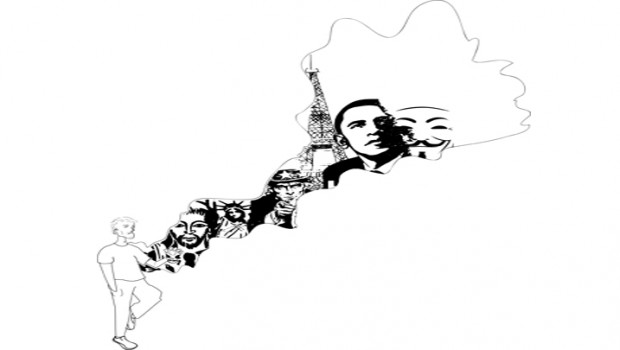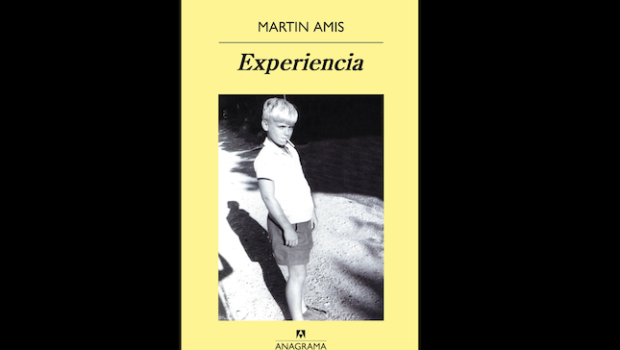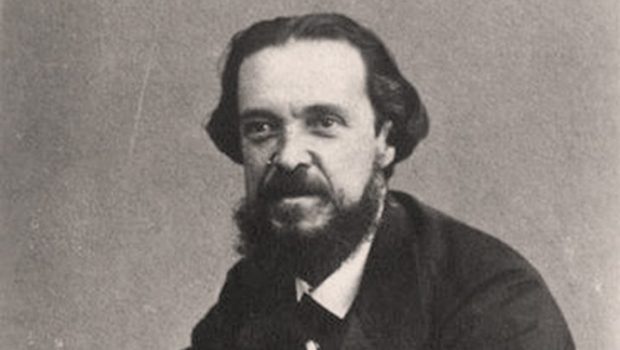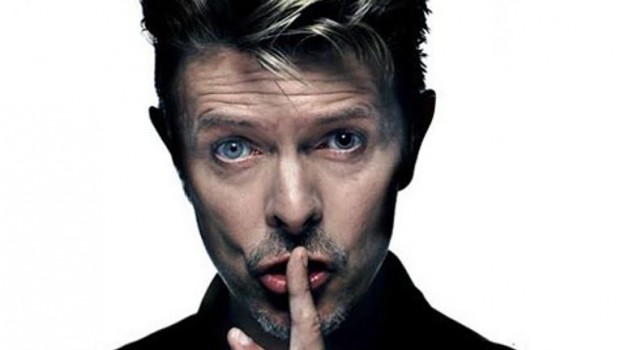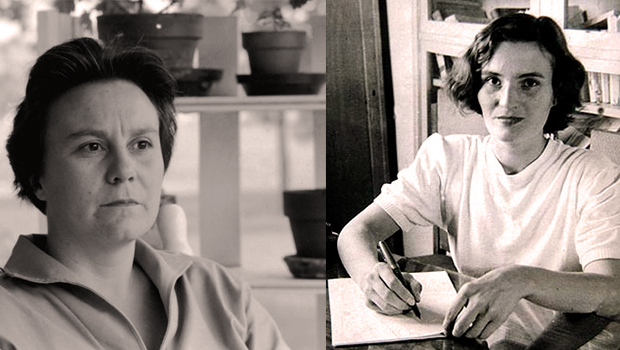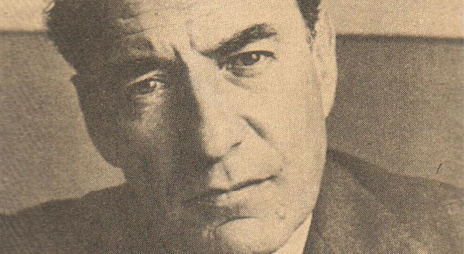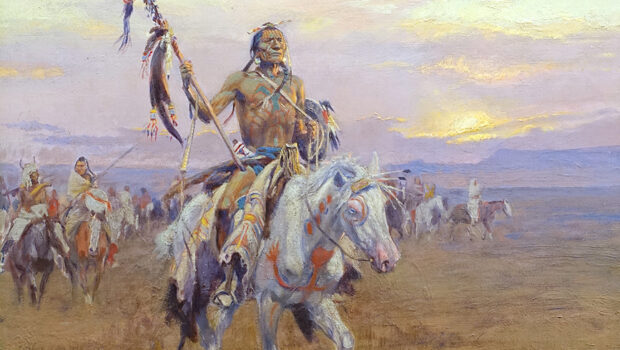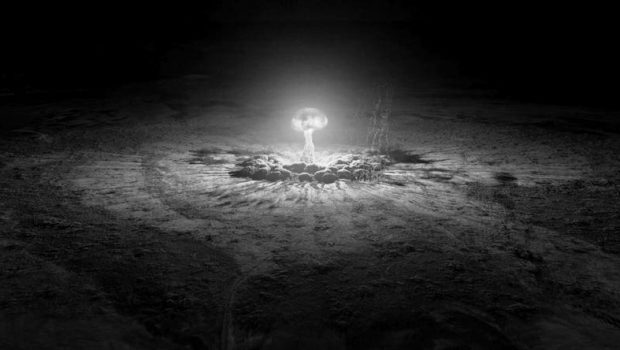The Word of Admonition
Antonio Caso
This year, José Antonio Aguilar Rivera, a Professor of Political Science at CIDE, will publish Liberty in Mexico (Liberty Fund), a book of sixty-four essays and writings on liberty and liberalism from early independence to the late twentieth century, written by a variety of authors (José María Luis Mora, Lorenzo de Zavala, Valentín Gómez Farías, Lucas Alamán, Francisco Zarco, Ignacio Manuel Altamirano, Justo Sierra, Emilio Rabasa, Octavio Paz, and so on). The institutions of modern representative government and free-market capitalism very much formed part of the founding of Mexico. The essay we present here is by Antonio Caso, a member of the Ateneo de la Juventud, who provides us with an early twentieth-century perspective on the subject of democracy and freedom.
** *
The history of humanity is progress in consciousness of liberty. Hegel
In our time, various political systems have arisen over against democracy that would be called the clear negation of the essential postulates of every democracy. Consider that the affirmation of political liberty, within a given democratic regime, constitutes the reiteration of social theories already declining in the development of human history. Nonetheless, Hegel conceived the development of civilization as if it were the very apotheosis of liberty. For this he formulated, in his famous lectures on the Philosophy of Universal History: “The history of humanity is progress in the consciousness of liberty.” That is to say, the essence of human development, of humanity in man, is constituted by the consciousness of liberty.
Today, another great philosopher, of whom Ortega y Gasset has said that his wealth of ideas is overwhelmed in the splendor of multiple and varied small jewels that spring from his mind, realizing the brevity of his existence, has written: “Liberty, active and personal spontaneity of the spiritual center of man (of man in man), is the first and fundamental condition that makes culture possible.” Because Scheler conceives culture as an ontological relationship. To know is to be cultured. The cultured man participates in the being of the things he knows or understands. In the relationship of the understanding, the object determines the attitude of the subject. To know is to observe what is investigated with all the resources of the mind, but without deforming it with prejudgments. And how would this endeavor of understanding be able to actualize this ontological relationship with the object if it did not enjoy liberty in the investigation? How to understand, to know something scientifically, culturally, if, a priori, the guidelines are set out so for knowing the known? In what form, outside an environment of liberty, could criticism, which constitutes the very rhythm of science, be exercised?…
Therefore, Scheler is right when he demands spontaneity of the spiritual center of man as a condition for the possibility of culture. We are not supporters of just anyone who calls himself “free thinker”; but we certainly believe in every truly free thinker. Well then, culture is the sublime reason for man. Culture is holiness, goodness, beauty, justice, truth. All the values are integrated into the notion of culture. Human societies are laboratories of the ideal.–outstanding laboratories, in which the truth is revealed, in which beauty shows itself, in which justice is realized and attainable holiness works in each historic moment, in human individuals!
Only by one road–asserts Max Scheler–can democracy today sabe itself from dictatorship and, at the same time, save the goods of culture and science: by limiting itself, putting itself at the service of culture and the spirit instead of trying to dominate them. Otherwise, only one solution remains: an enlightened despotic dictatorship that, without taking into account the feeling of the masses hostile to the culture and of their status as adults, dominates them with the whip, the saber, and the lump of sugar.
The cited text implies various distinct propositions in advance. The first teaches the only road to salvation of democracy, or better, salvation of liberty: limitation of democracy itself, putting itself at the service of culture and the spirit.
Because when it is a matter of liberty and democracy, it is thought, generally, that both constitute an end in themselves by themselves. This specifies the very grave error of accepting that the ultimate end of man and his civilization is liberty and its corresponding political form, democracy. No; liberty is a means and not an end; it can be justified only by putting itself at the service of the goods of culture and science. Liberty for everyone, liberty for all; but provided that it be the means of acquiring the truth, of realizing the good and justice; because we are not born to be free, but rather to be good. Liberty for evil, liberty for error, democracy for crime, totally lack sense; it denies, as Scheler would say, “the active and personal spontaneity of the spiritual center of man.” Deny the man in the man!… Liberty and democracy as conditions of culture are not only irreproachable, but rather, as we have proved before, only through them can the highest values of existence be realized.
But if–as we have said before–“instead of putting himself in the service of the spirit, the demagogue tries to dominate it, with his very stance he is obliterated in the face of reason, and he dishonors, corrupting it, the very principle of liberty.” This is the great fallacy of all democracies, that their endeavors on behalf of the liberty of the people transgress their own and essential limits: the confusion of the means with the end. On occasion, the means for attainment of human ends are so admirable that these means are made into ends, and they are then devoid of all possible sense.
The same thing that happens with liberty happens with wealth. What happens with democracy happens with gold. Liberty is good, it is essential, as gold is good for life; but the rich person must serve with his wealth, the same as the free man with his liberty, the superior ends of existence. Over liberty and wealth are truth and the good. No one is free to be evil! No one is rich to be unhappy! Wealth and liberty have their full meaning if they are put in the service of culture and the spirit, if they are judged means and not ends, if they acknowledge that the ultimate end of man must consist only of the harmonious synthesis of eternal true values.
The unavoidable consequence of lack of knowledge of the ends of liberty and democracy leads directly to despotism. This is what the final proposition of Max Scheler’s thinking formulates: “Otherwise, only one solution remains: an enlightened despotic dictatorship that, without taking into account the feeling of the masses hostile to the culture and of their status as adults, dominates them with the whip, the saber, and the lump of sugar.”
Dictatorships, then, are not absolute goods; they are relative evils. When democracies go too far in the organic exercise of liberties, they appear as defense of an unfit culture, of ridiculed truth; but they cannot have another distinct meaning or another justification, because tyranny goes against the essence of culture, because liberty is the first and fundamental condition that makes it possible. In this way, the diverse ideas to which we have alluded join together in the history of peoples; liberty, democracy, dictatorship, civilization. When the democratic thesis oversteps its essential limits, the antithesis of the dictatorship is produced; but the true synthesis is affirmation and negation of both inadequate, incomplete thoughts; because dictatorships stifle culture in the same way demagogic movements do; and above all, the means figure unfailingly the ends, the indeclinable values: truth, justice, beauty, goodness, holiness!… For this reason we can repeat, in closing, the thought of Hegel that serves us as epigraph: “The history of humanity is progress in the consciousness of liberty.”
It is characteristic of the great spirits to move forward in life, foreseeing the future action that in their minds is revealed before solidifying, objectively, in tangible historic movements. Science is foresight; that is to say, anticipated vision that infers the near or distant future from the present. To pre-see signifies seeing before having seen. Because intelligence views the object that will be formed, understanding through anticipation, reading with the eyes of the spirit before those of the body, actualize their optical function. But intelligence does not realize its most admirable work through the spirit of prophecy, or by inexistent magical intuitions; but rather it is elevated to the universal, to the eternal and incorruptible essence, and it knows, then, a priori (thanks to its own ideational act), that the future will realize the essential, already perceived from the present. This is not prophecy, certainly, or illusion, or the working of miracles. It is the ordinary act of the powerful intelligence, which, in seeing the universal and concrete essence, knows it will be realized today and always, here and everywhere.
In this way the brilliant thought of Max Scheler continued in confirming that the symptoms of a troubled epoch of coercion andslavery for the human spirit were already vigorously begun. Situated on the threshold of our age, before death put an end, certainly premature, to his independent speculation, the philosopher confirmed, in the midst of his distressed perplexity, the tyranny of a century that prepares itself on the ruins of the decadent individualism of the nineteenth century.
And it is that the contrasts of the diverse political-social dogmas are only that with respect to their subject matter, but the form is identical for the opposing factions. This universal form, this essence, is what Scheler saw, in his ideational act, relative to the characteristics of our age. The figure and the counterfigure, the positive and the negative, varied in content, but the essence is universal and unique. It is a matter of both opposing factions denying liberty, but without liberty there cannot be thought, science, or culture. Because liberty and thought are unified in the human composite, in the human being. What are the two most noble faculties of the human psyche? How is personality integrated? With which elements is it organized as a true personality?… Only by virtue of the narrow relationship that intervenes between the will and the thought, between liberty and the idea. Man thinks freely. This is his total personality, his free thought. Liberty without thought is not conceivable. Nor thought without liberty.
Animals have neither liberty nor thought. Man has thought and liberty; but he does not have them as differentiated and distant elements, but rather forming a synthetic, indestructible unity. For this reason, all aggression against liberty threatens thought, and all aggression against thought is also that against liberty. Only truethought, which is free thought, can give of itself true thoughts, that is to say, cultural realizations in which the supreme values of culture are integrated.
Let us consider the figure and the counterfigure of diverse content, but which, together, realize the formal essence of tyranny:
Let us cast a glance–says Max Scheler–on the current world. Russia: an index liborum prohibitorum, imitation of that of the medieval Roman Church, in which are included the two Testaments, the Koran, the Talmud, and all the philosophers from Thales to Fichte. No book in which the word “God” figures can pass the border. Only immediately usable sciences, technical, hygienic, and economic, are admitted in accordance with the discredited Marxist and pragmatic theory of the relationship between science and economics. Marxism, crushed today more than ever by criticism, is ceremoniously exalted to the level of dogma of a great empire.
In sum, the form is tyranny, the essence is exclusion of the liberty of thought. The subject matter constitutes the apotheosis of one doctrine among many, selected to be converted, as the philosopher says, into an intangible dogma of consciousness. Let us look now at the counterfigure. In North America,
a movement that is called fundamentalism because it claims to elevate the Bible, in the sense of literal inspiration, to absolute foundation of knowledge and life. Based in this idea, a powerful popular movement that demands nothing less than a legal veto of the teaching of the theory of origins in any of its forms (Lamarkism, Darwinism, vitalism), and all research on it, within establishments sustained by the state.
In some countries, like Mexico, the opposite is sought, even now; throw out every biological theory that might be expressed against transformist scientific theories. But natural science cannot be contained within the limits of any dogmatic affirmation! It is as wrong to exclude without appeal as to concede without disagreement. It is as unfortunate to deny without critical spirit as to affirm without the vitality of liberty of thought. The advance of science passes over Marxism, Lamarkism, and Darwinism because its eternal form cannot be constrained in what a given epoch, a stage of knowledge and culture, grasps as truth. To prohibit or exalt is not characteristic of researchers or of learned people. The learned person does not know what, finally, the results of his research will be; and he is always disposed to sacrifice all the ideas in favor of a sole observation, of a sole experiment that negates them.
Before the perspective of essentially common negation arises the perplexity of the philosopher. Why will there be a century like ours, enemy of liberty of conscience? Is it that, in truth, culture is declining? Why do we declare ourselves enemies of what constitutes a fundamental part of human moral being? What malevolent spirit inspires contemporary humanity to make it disown free will, supreme divine gift? How is it that in affirming error one wishes to realize the good? Is it not a pregnant paradox of unforeseen dramatic consequences to be bent on destroying what is most lofty in the human personality? Do the nations not seem to be distancing themselves, each time more, from the goods derived from respecting liberty and thought in their essence?…
For this reason, the noble spirit of Max Scheler declares its anguish with these moving words, which could be called the admonition of the man of genius to the people of his century:
A genuine terror takes possession of me in the face of the growing abandonment of liberties and the loss of sensibility, gray and shapeless twilight in which, not only this or that country, but almost the entire civilized world finds itself in serious danger of collapsing, of being slowly drowned, almost without noticing. And, nonetheless, liberty, active and personal spontaneity of the spiritual center of man–of Man within man–is the first and fundamental condition that makes culture possible, the enlightenment of humanity!
The great admonisher has died; but his word of life and truth resounds over all the sophisms converted into inviolable canons of human thought, because the truth is another eternal essence that no revolution can stop or destroy with its attacks!
Posted: September 20, 2012 at 9:39 pm


